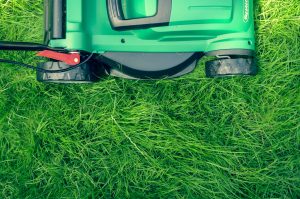Weeds can damage your grass and your garden beyond repair if you allow them to take over. They will feed on all the water and nutrients meant for your lawn and plants while they pale and die out due to starvation, which is why you need the best lawn weedkillers to ensure the longevity of your yard.

However, not all weed killers are alike, and not all of them are safe. The herbicides will change according to the region you stay in and the type of grass you have on your lawn. Here are some points that will help you choose the best lawn weed killers:
1. Types of Weed
Not all weeds are the same. You have to identify the weed correctly before you buy a weed killer for it. Some varieties of weeds are more resistant to herbicides. If you do not buy the right sort, you would only end up spraying chemicals on your lawn for no good reason.
If you are not sure about the types of weed in your lawn, you can also hire a professional to help you identify them. The most common weeds are crabgrass, foxtails, spurge, knotweed, and purslane, among others. Broadleaf weeds can be tough to kill. You need to know the weed types and their life cycles to get rid of them completely.
2. Safe for the Grass
What makes many weed killers dangerous is that they also end up killing your beloved grass along with the weeds. The weed killer should only target the weeds and not the grass. If you are not sure, then it is good to apply the weed killer on a patch of weeds and notice its effect on the surrounding grass before you proceed to dew the entire lawn.

In case you see the surrounding grass browning or wilting, you should immediately discontinue and look for other options. When choosing the best lawn weed killers, make sure to check for its safety so that it doesn’t deteriorate the lushness of your grass.
3. Safe for Pets and Kids
The weed killer should be safe for pets and kids who play on the grass. No matter which kind of weed killer you choose, it is ideal not to let your pet or the kids play on the grass for a few days after the application. Even then, it would be best if you opted for herbal options as chemical ones can result in intense allergies in some cases.
Also, you must take care of your eyes and hands by wearing protective gear at the time of its application. Avoid walking on the area you finished spraying as you might step on your lawn later, transferring the weed killer to your healthy grass.

4. Coverage
The coverage will depend on the strength and the concentration of the weed killer. Usually, the label will guide you on preparing the weed killer and the area it will cover. You need to measure your lawn to understand how much concentrate you will need per sq foot of your garden.
Some weed killers might also require multiple applications to get rid of the weeds completely. You will need a powerful systemic weed killer if there are perennial weeds in your garden. A pre-emergent weed killer, on the other hand, is enough to take care of annual weeds. Once you have found the best lawn weed killers, you will be able to get rid of all the weeds with consistent applications.
Some weeds do not die with one application, and you might find them returning merely after a few weeks. But consistency is the key here, and with time, you will be able to clear out your lawn completely. Thanks to lawncareassistant.com for consulting.
























